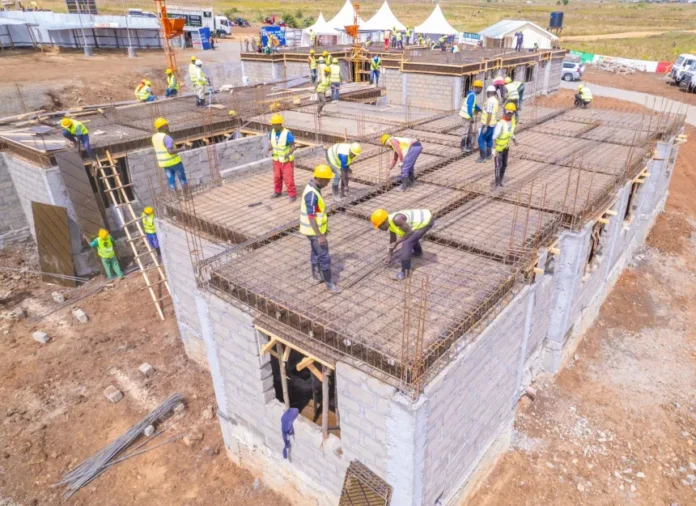The government has proposed a KSh 128.3 billion allocation for the Housing, Urban Development, and Public Works sectors in the 2025/2026 budget, reaffirming its commitment to addressing the housing shortage and improving urban infrastructure across the country.
Presenting the budget to Parliament on Thursday, Treasury Cabinet Secretary John Mbadi emphasized that the Affordable Housing Programme (AHP) is central to the Kenya Kwanza administration’s development agenda, serving not only to provide decent and safe homes but also to create employment opportunities for the youth through construction and local supply chains.
Out of the total allocation, KSh 64.5 billion will go toward the construction of Affordable Housing Units, while KSh 10.5 billion has been earmarked for Social Housing Units. The Kenya Urban Programme (KenUP) is set to receive KSh 13.4 billion, with an additional KSh 16.5 billion allocated for social and physical infrastructure to support these housing initiatives.
To improve living standards in informal settlements, the Kenya Informal Settlement Improvement Project Phase II has been allocated KSh 7.2 billion. A further KSh 3.5 billion will be used for constructing housing units for the National Police and Kenya Prisons, while KSh 500 million has been set aside for the Building Climate Resilience of the Urban Poor Programme (BCRUP).
Other allocations include KSh 454 million for the construction of County Headquarters and KSh 184 million for the development of footbridges in key urban areas.
To enhance building safety and ensure compliance with construction regulations, CS Mbadi also proposed KSh 2.6 billion for the Regulation and Development of the Construction Industry. These funds will support enforcement of building codes, promote sustainable practices, and strengthen industry oversight.
“The Affordable Housing Programme is not only addressing the housing deficit but also creating jobs and stimulating the local economy,” said Mbadi.
The programme remains a cornerstone of the government’s Bottom-Up Economic Transformation Agenda, with long-term goals of delivering hundreds of thousands of housing units while promoting inclusive economic growth.
Written By Rodney Mbua



















